period drama
description: drama fiction work of art set in, or reminiscent of, an earlier time period
56 results
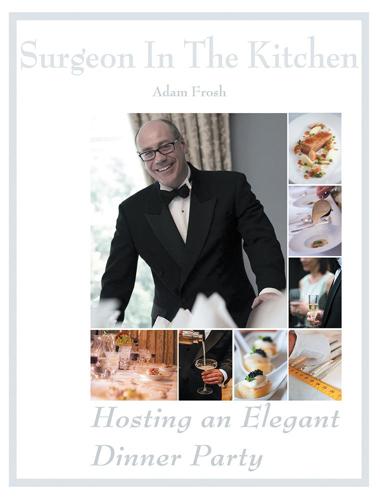
Hosting an Elegant Dinner Party: The Surgeon in the Kitchen
by
Adam Frosh
Published 17 Feb 2015
I strongly recommend the reader has practised the recipes well before contemplating entertaining ten people for a seven-course sit-down banquet. Once sufficient confidence has been reached, however, the reader will be able to create dining experience with the finest of dishes and an ambience to match any period drama. I have constructed the dishes in the menus in a way that creates a good variety of food experiences throughout the meal while avoiding flavour repetition. The menus have been themed so as to build up to the main course as the crowning piece in the meal. There is however, nothing to stop the reader swapping dishes from other menus.
…
The modern age has seen a shift generally away from the social rules of the Georgian and Victorian eras with consequent relaxation of etiquettes in manners and dress codes. It is perhaps this drift from convention, which has created a resurgence in interest in texts such as Noblesse Oblige, or Judith Martin’s Miss Manners’ Guide to Excruciatingly Correct Behavior. We marvel at the stunningly produced televised period dramas and movies. How many of us have not imagined ourselves dressed in the period style, sitting at those grand dinner tables adorned with full silver service as we are waited upon by an attentive footman in livery? Of course, such functions were always the preserve of the society elite. However, our modern-day standard of living has improved to such an extent that fine food at least is now open to a much wider spread of people in the many excellent restaurants around the world.
…
However, our modern-day standard of living has improved to such an extent that fine food at least is now open to a much wider spread of people in the many excellent restaurants around the world. Many of these restaurants serve dishes to such a high standard that they would have astounded those very elite classes portrayed in television period dramas. Elegant dining is without doubt a fun experience. It is both a privilege and a joy to entertain our guests. The trick for the host is to provide the necessary attention to detail to the party and food that convey to the guests a feeling of effortless but special hospitality. This book is not designed to be a reference for generation of everyday meals.
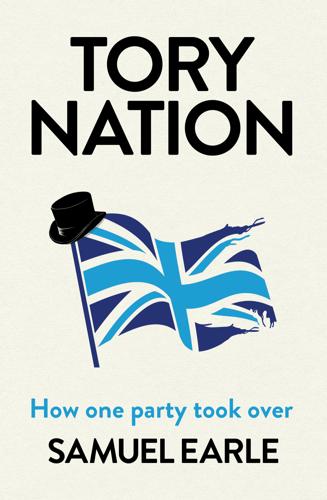
Tory Nation: The Dark Legacy of the World's Most Successful Political Party
by
Samuel Earle
Published 3 May 2023
Besides Downton Abbey, which at its peak was watched by over a seventh of the total population, the nation’s other favourite television shows typically offer pleasing escapes into quaint hierarchies: The Crown, Poldark, Bridgerton, the endless adaptations of Charles Dickens and Jane Austen, and so on. In 2019 alone, there were more than thirty new series of period dramas, either produced or set in the UK.3 This vision of Britain is also one of our finest exports. Downton Abbey gained an audience of 120 million worldwide, making it the most successful British television show of all time.4 But even Downton Abbey’s success pales next to the popularity of Britain’s most beloved period drama, one that is confoundingly contemporary: the British monarchy. In 2011, over a third of the British population – about 24 million people – tuned in to watch the marriage of Britain’s future King and Queen, Prince William and Kate Middleton.
…
1 Veronica Lee, ‘Countdown to Downton: Your essential guide to the TV event of the year’, Independent, 4 September 2011. 2 Kate McCann, “Outdated’ peerage rules turn women into ‘non-persons’ says Downton creator’, Daily Telegraph, 11 September 2015. 3 ‘33 new British TV period drama series to watch in 2019’, British Period Dramas. 4 Jane Mattisson, ‘Downton Abbey: a Cultural Phenomenon. History for the Many’, SIC, no. 1, year 5, December 2014. 5 Mark Easton, ‘Why does the UK love the monarchy?’, BBC, 29 May 2012. 6 Tom Nairn, The Enchanted Glass: Britain and Its Monarchy, Verso, 2011, p. 204. 7 Bédarida, A Social History of England, p. 203. 8 Susan Pedersen, ‘Triumph of the Poshocracy’, London Review of Books, vol. 35, no. 15, 8 August 2013. 9 Reece Garcia, Taking Back Control: Putting Work, Money, Politics and the Media in the Hands of the People, chapter 1, The Book Guild Ltd, 2022. 10 Moore, Margaret Thatcher: The Authorized Biography, vol. 1, p. 387. 11 George Orwell, ‘Boy’s Weeklies’, 1940. 12 Kate Fox, Watching the English: The Hidden Rules of English Behaviour, Hodder & Stoughton, 2014, p. 205. 13 Bédarida, A Social History of England, p. 76. 14 Jeremy Paxman, The English: A Portrait of a People, Abrams Press, 2001, pp. 188-90. 15 Nairn, The Enchanted Glass. 16 Ian St John, Disraeli and the Art of Victorian Politics, Anthem Press, 2010, p. 113. 17 Gamble, Conservative Nation, p. 62. 18 David Cannadine, ‘The Context, Performance and Meaning of Ritual: The British Monarchy and the “Invention of Tradition”, c. 1820–1977’, in The Invention of Tradition, Eric Hobsbawm and Terence Ranger (eds), Cambridge University Press, 1992. 19 Ibid. 20 Bédarida, A Social History of England, p. 147. 21 Amy Walker, ‘Do mention the war: the politicians comparing Brexit to WWII’, Guardian, 4 February 2019. 22 Tony Blair, ‘Let us Face the Future’ – the 1945 anniversary lecture, Fabian Pamphlet 571, Fabian Society, London, 1995, p. 10.
…
In the end you don’t care enough about ideas to suffer their consequences.’14 Common sense is the nation’s compass; hard work will see us through. As Downton Abbey’s cook reprimands her assistant, who is mouthing off about the royal family from Downton’s dark kitchen-basement: ‘Less philosophy, more elbow grease.’ Echoed by the Tories, this command sees Britain through every crisis. * * * The central place of both period dramas and the monarchy in British culture point to a nation that has evolved along Conservative lines. Britain’s placid advance through history, free from radical rupture, has meant that many national traits are Tory traits: a reverence towards the past, an affection for the aristocracy, a culture that prizes continuity and a scepticism towards political idealism and philosophy.

Misfits: A Personal Manifesto
by
Michaela Coel
Published 6 Sep 2021
I was told its theatre attracted agents from far and wide, and during the final year they’d come to see us perform and sign the hottest talent. Like kids scrabbling for a sweet from above. Silk Street Theatre—where the hottest talent met the hottest agents, to partner with the hottest casting directors, to make the hottest period dramas. I was the first Black girl they’d accepted in five years, a fact which the head of the school described to me as “the elephant in the room.” This was my third attempt at a university. I’d still never been into a pub, to a festival. I just hadn’t. I’d never watched Fawlty Towers or Red Dwarf or heard of any festival in Edinburgh, I just hadn’t, and struggled to converse on things I didn’t know about.
…
I lived in E1; everyone who lives in E1 knows: we live by the river, but even we don’t cross it. There was also the option to remove yourself from a main show to do a fifteen-minute solo piece; rarely did anyone do this as it wasn’t on Silk Street, it was in the basement floor of the theatre. But this wasn’t about agents anymore; it was a chance to create something that wasn’t a period drama designed in period costumes. I wanted to make something for this period, so I did both. I wrote a dark comedy called Chewing Gum Dreams. A title born from a poem; that poem born from an image in my mind. Of a tall council flat, tall as the Tower of Babel, winged falcons soaring round its highest floor in perpetual circles.
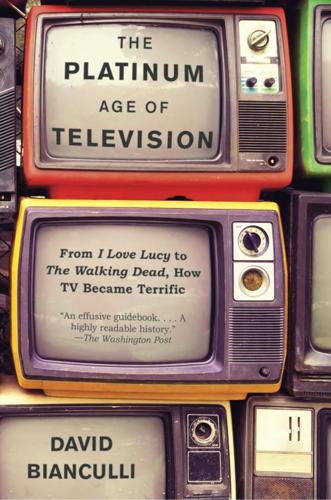
The Platinum Age of Television: From I Love Lucy to the Walking Dead, How TV Became Terrific
by
David Bianculli
Published 15 Nov 2016
But in the field of drama, that doesn’t account for everything, and there are shows, whether they be family dramas, shows examining occupations less commonly dramatized on TV, or just defiantly unclassifiable ones, that elude the dominant classifications. Every decade starting with the 1960s has them, and some are exceptional exceptions indeed. CBS’s East Side/West Side (1963–64) starred George C. Scott as a committed social worker dealing with the New York slums. Period dramas looked at family life in CBS’s Waltons (1971–81) and racism in NBC’s I’ll Fly Away (1991–93). Modern family dramas about everyday life were depicted, using very different approaches in different decades, in ABC’s Family (1976–80), ABC’s thirtysomething (1987–91), ABC’s Life Goes On (1989–93), NBC’s Friday Night Lights (2006–11), and NBC’s Parenthood (2010–15).
…
On Matthew Weiner’s Mad Men, set against the world of Madison Avenue advertising, people were glib and gifted at speaking in flowery and seductive tones and phrases, but rarely, if ever, did they expose themselves by telling the truth or revealing their true thoughts and desires. And when they did, in this repressed era of the 1950s and 1960s, things seldom went well. Mad Men was a period drama about Madison Avenue advertising agency owners and employees, centering on Don Draper (played by Jon Hamm) as an inventive ad agency executive with a gift for reinvention, as in the show’s famous finale. The central character of Mad Men was Jon Hamm’s Don Draper, a man so adept at creating alluring advertising slogans and campaigns that he had once sold himself as a complete, and completely false, bill of goods.
…
And to get on a Paramount show with Ted Danson in it, that has an order—that was a big job. I wouldn’t say I was drawn to it. I would say that that was my profession.” Weiner stayed with Becker for three years and, during one of the hiatus periods, wrote the pilot episode for what would become, many years later, Mad Men. When he described the concept to people in advance—a period drama series based in the world of 1960s Madison Avenue—even his friends either balked or said it was “execution dependent.” So Weiner figured he had to write it, and did. “I just pulled the trigger and wrote the pilot, gave it to my agents,” Weiner says, “and nothing happened. I couldn’t get a meeting.”
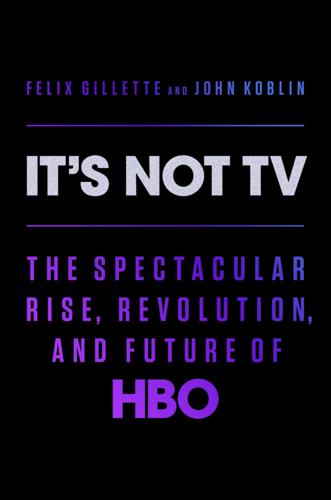
It's Not TV: The Spectacular Rise, Revolution, and Future of HBO
by
Felix Gillette
and
John Koblin
Published 1 Nov 2022
Tom McCarthy, a screenwriter (The Station Agent) and actor, who played the crooked Baltimore Sun reporter Scott Templeton on the final season of The Wire, directed the sprawling affair. All of which seemed promising. But when the pilot came in, it was terrible—a convoluted, off-putting mess. The costumes looked funny. The hair and makeup looked worse. The relationships between characters were confusing. The tone felt weirdly quaint, like a British period drama. And for a grandiose epic fantasy story, the pilot felt frustratingly claustrophobic. It lacked a sense of grandeur. Plepler considered pulling the plug. HBO could cut its losses. But the series had strong internal backers. Sue Naegle, the network’s newly empowered show picker, was a strong supporter.
…
“I’m really thrilled to be able to return to stand-up on HBO,” Stewart said. But the performances never materialized. In the end, Stewart’s four-year contract with HBO amounted to little more than hosting a charity special, a total bust. By comparison, things at Netflix were going swimmingly. That fall, The Crown premiered on Netflix, a period drama about the royal family created by British screenwriter Peter Morgan. It was the first of a planned six-season series that would rotate casts every two years and chronicle Queen Elizabeth II’s life from when she ascended to the throne in the 1950s to the present day. Critics raved over the first season and were especially blown away by the show’s palatial sets and costumes.
…
With Netflix and other well-funded streaming services pouring billions of dollars into original programming—and traditional networks like HBO trying to keep up—the amount of TV being made was shooting up like never before. With each passing year, the TV industry was spitting out more comedies, cop shows, sci-fi thrillers, miniseries, game shows, cartoons, fishing adventures, interior decorating competitions, and lavish period dramas. According to one estimate, between 2002, the year The Wire first arrived on HBO, and 2019, when Watchmen made its debut, the total number of adult scripted series airing in the United States had nearly tripled, soaring from 182 to 532. To fuel the expansion, the TV industry was ravenously gobbling up bodies from adjacent creative professions.

The Rough Guide to Seoul
by
Rough Guides
Published 26 Sep 2018
Subway Korea When you’re in a crowded subway carriage and can’t see the maps, it pays to have one in your pocket, and this one’s “last train” function can save you from getting stranded. Yogiyo Named after the word you’d utter to get attention from restaurant staff, this food-ordering app can get a tasty meal right to your doorstep. Television Korean television is a gaudy feast of madcap game shows and soppy period dramas, and there are few more accessible windows into the true nature of local society. Arirang (arirang.co.kr) is a 24hr English-language television network based in Seoul, which promotes the country with occasionally interesting (but often propaganda-like) documentaries, and has regular news bulletins.
…
Joint Security Area (2000) Any Korean film about the DMZ is worth a look, as is anything by acclaimed director Park Chan-wook. Here, two North Korean soldiers are killed in the DMZ; like Memento (which came out the following year), the story plays backwards, revealing the lead-up piece by piece. The King and the Clown (2005) A period drama with homosexual undercurrents, this was an unexpected smash hit at the box office. Set during the reign of King Yeonsan – whose short rule began in 1494 – it tells of a pair of street entertainers who find themselves in Seoul’s royal court. One of them fosters an ever-closer relationship with the king.

Fodor's Seoul
by
Fodor's Travel Guides
Published 29 Nov 2022
The classic Train to Busan features a dad and daughter duo trying to escape a zombie outbreak in Seoul by boarding a train to the peninsula’s southernmost city, Busan. In the Netflix series All of Us Are Dead, a zombie outbreak at a Korean high school leaves students trapped with their flesh-eating former classmates. The 16th-century period drama series Kingdom follows the royal family during a mysterious pestilence. PACHINKO Written by Korean-American journalist Min Jin Lee, Pachinko is a sweeping work of historical fiction that follows a Korean family that moves to Japan during the Japanese occupation of Korea and World War II. After you’re finished with the book, binge the television show based on the novel of the same name.
…
Browse the area’s quaint houses, galleries, and craft boutiques (this is a good place to pick up souvenirs such as pottery, fans, or handmade paper). After shopping, take a rest at the Beautiful Tea Museum (free) which is set in an elegant hanok house. A short walk north will take you to Bukchon Hanok Village. Filled with more than 900 historic houses, this neighborhood is a favorite filming locale for period dramas and simply soaking in antiquity at the many charming cafes, craft workshops, and small museums such as the Bukchon Asian Cultural Art Museum (entrance ₩5,000, closed Monday). DAY TWO: SCENERY AND STREET FOOD Take subway Line 4 from Seoul Station and exit at Hoehyeon Station to start the day at Namdaemun Market, Seoul’s oldest and largest market dating back to the 15th century.
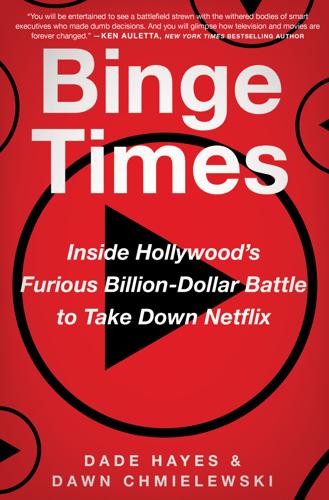
Binge Times: Inside Hollywood's Furious Billion-Dollar Battle to Take Down Netflix
by
Dade Hayes
and
Dawn Chmielewski
Published 18 Apr 2022
Other studios soon passed, one by one. The Irishman—putting aside the romance of Scorsese’s making his first film with Pacino and his ninth with De Niro, and luring Pesci out of retirement—was precisely the kind of film that Hollywood spent the 2010s ardently avoiding. It was a pricey, carefully paced period drama with no franchise potential or merchandise tie-ins. Even if it somehow ran the gauntlet of awards season and swept the Oscars, it still looked like a break-even proposition at best. “We found the people who would back it, and that was Netflix,” Scorsese explained on opening night. “No one else would give us what we needed to make the film.
…
“Truly, stories to believe in. Stories with purpose.” Unlike at the star-studded event six months earlier, Cook served as Apple TV+’s lone pitchman. He touted such premier originals as For All Mankind, an alternate telling of the 1960s space race from Battlestar Galactica’s Ron Moore; Dickinson, an anachronistic period drama in which a teenage Emily Dickinson, played by Hailee Steinfeld, rebels against her father’s refusal to let her publish her poetry; and The Morning Show, a star-studded drama that, he crowed, Entertainment Weekly had declared “fall’s most anticipated series.” Cook used the Cupertino stage to screen a trailer for See, a postapocalyptic fantasy starring Jason Momoa and Alfre Woodard that takes place in the distant future, after a deadly virus has decimated humankind and left the few who survived blind.
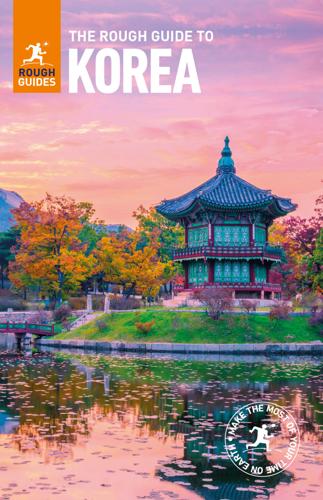
The Rough Guide to Korea
by
Rough Guides
Published 24 Sep 2018
Subway Korea When you’re in a crowded subway carriage and can’t see the maps, it pays to have one in your pocket – this has every subway system in the land covered, and the “last train” function can save you from getting stranded. Yogiyo Named after the word you’d utter to get attention from restaurant staff, this food-ordering app can get a tasty meal right to your doorstep. Television Korean television is a gaudy feast of madcap game shows and soppy period dramas, and there are few more accessible windows into the true nature of local society. Arirang (arirang.co.kr) is a 24hr English-language television network based in Seoul, which promotes the country with occasionally interesting (but often propaganda-like) documentaries, and has regular news bulletins.
…
In addition to the books written by Kim Jong Il – he was said to have authored well over a thousand, and many have been translated into various languages for foreign consumption – there are a few interesting newspapers and periodicals, some of which may be dropped into your lap on the flight from Beijing. Once you get to your hotel, you’ll be able to tune into KCTV, the state television channel. For locals, this is off-air for much of the day, but foreign visitors get a full 24 hours of looped North Korean news and period drama. The latter is mainly made up of patriotic heroes refusing to capitulate to foreign forces, the themes a mix of Japanese occupation period, Korean War times and not much else. In addition, there’s wkcna.co.jp, the official news website of the DPRK; the near-daily stories (some real, some not) of South Korean unrest against American military presence bring to mind the news reports about Eurasian and Eastasian activity in Orwell’s Nineteen Eighty-Four.
…
The film broke Korean box office records, and provides a fascinating depiction of the tensions of the time. The Admiral: Roaring Currents (2014) Still the biggest selling film of all time in Korea, this big-budget blockbuster focuses on the attempts of Admiral Yi Sun-shin – one of the country’s foremost national heroes – to rebuff a Japanese attack in the 1590s. The King and the Clown (2005) A period drama with homosexual undercurrents, this was an unexpected smash hit at the box office. Set during the reign of King Yeonsan – whose short rule began in 1494 – it tells of a pair of street entertainers who find themselves in Seoul’s royal court. One of them fosters an ever-closer relationship with the king.
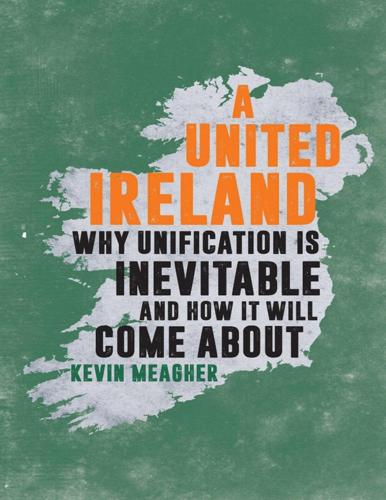
A United Ireland: Why Unification Is Inevitable and How It Will Come About
by
Kevin Meagher
Published 15 Nov 2016
To the Irish, the events of those tumultuous years are second nature. Michael Collins. The Black and Tans. De Valera. The War of Independence. Partition. But, to most people in this country, all this represents a secret history. It is not taught in our schools or depicted on our televisions. The Irish state broadcaster RTE commissioned a landmark period drama, Rebellion, about the Easter Rising in 1916, yet it did not air on British terrestrial television, despite the events being just as much part of the warp and weft of British history. If, indeed, there is a single difference between the Irish and the English, it comes down to understanding why the Brits are always cast as villains in Hollywood blockbusters.
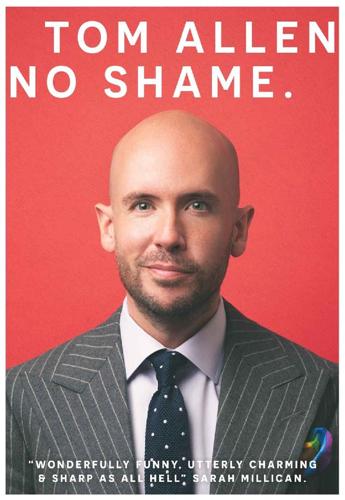
No Shame: The Hilarious and Candid Memoir From One of Our Best-Loved Comedians
by
Tom Allen
Published 12 Nov 2020
Of course for students with insight into the Oxford and Cambridge system (largely through parental experience of the Oxford and Cambridge system or private schooling where more of the teachers seemed to have gone there) they knew which college to apply to and how to behave in the interview. They also knew not to apply to the pretty colleges because they were already oversubscribed with idiots like me trying to live in a period drama. Instead of applying for popular subjects like history, they knew to apply for obscure ones like Anglo-Saxon Norse and Celtic at one of the brutalist grey colleges round the corner and then just change subject when they got there. I think it’s insider knowledge like this that cements class so rigidly.
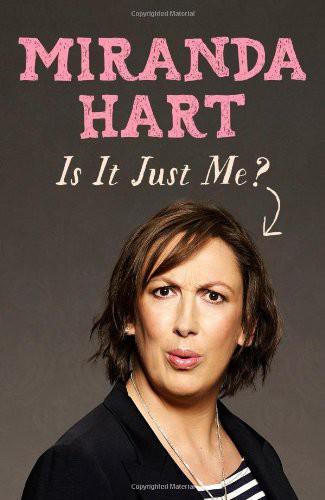
Is It Just Me?
by
Miranda Hart
Published 14 Apr 2012
It doesn’t matter what time it is. (This last one is big enough for . . .) 9. AND 10. Accidentally ending up watching a television sex scene with Mum and Dad. Oh, no, don’t worry: we have found a way around that one. It goes like this: MIRANDA, her MOTHER and FATHER on sofa, watching television. The nice BBC Period Drama has suddenly become unexpectedly racy. MOTHER: Oh. Right. I see. (PAUSE) SO! I thought we could all go on a lovely Boxing Day walk tomorrow. ME: Yes! Lovely! Do show me the route. MOTHER whips open the Ordnance Survey map. Shows MIRANDA the walk. Wild humping and groaning noises from the television.
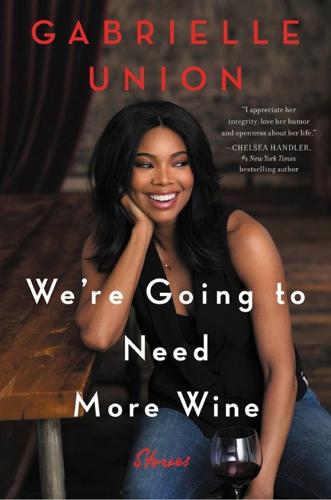
We're Going to Need More Wine: Stories That Are Funny, Complicated, and True
by
Gabrielle Union
Published 16 Oct 2017
Nobody else got her period for the longest time, but soon enough all the girls in fifth grade became familiar with Melody’s month-to-month schedule, and when she was absent, we spoke gravely of her condition, dramatically shushing each other when a boy came within hearing range. By seventh grade, Melody was no longer alone in her period drama, as all of us were getting picked off like flies. One of our friends would stay home from school or race to the nurse’s office, and then we would know: “It came for her.” No one I knew was excited about it. You looked forward to it the way you looked forward to food poisoning. I knew that at any moment, it would be my turn to stand up and everyone would point in my direction.
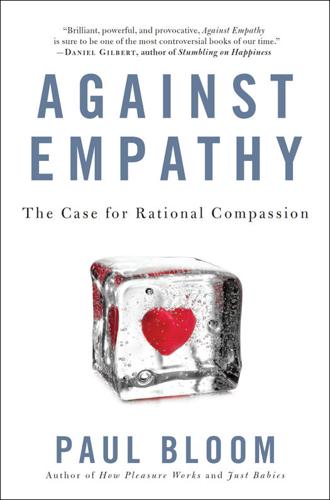
Against Empathy: The Case for Rational Compassion
by
Paul Bloom
Indeed, many scholars have argued that empathy itself has evolved for the purpose of parenting—in particular, to guide the mother and child to establish a synchrony so that they come to feel one another’s experiences, allowing the mother to better take care of the child. What role, then, does empathy play in good parenting? An obvious starting point here is that good parents understand and love their children. (This has to be the most banal sentence of this book.) Nobody wants to parent like Betty Draper, a character in the period drama Mad Men. Child: “I’m bored.” Betty: “Go bang your head against the wall.” Child: “Mom?” Betty: “Only boring people get bored.” But good parenting also requires an appreciation that the long-term goals of a child do not always correspond to his or her short-term wants. My worst moments as a father aren’t when I don’t care; they’re when I care too much, when I cannot disengage from my children’s frustration or pain.
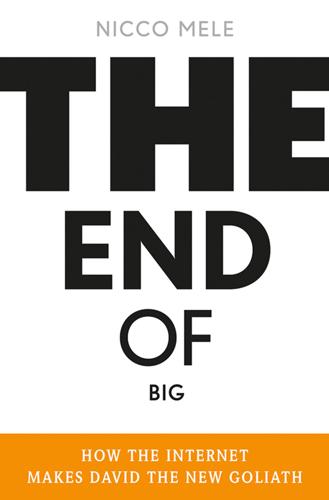
The End of Big: How the Internet Makes David the New Goliath
by
Nicco Mele
Published 14 Apr 2013
A single episode of the hit AMC cable show Mad Men costs approximately $2.3 million to produce.23 That cost makes good business sense for AMC, thanks to advertising and cable fees.24 To date, we simply haven’t seen an online video with the production quality, appeal, and intensity of popular television hits or blockbuster movies. Popular online shows like the Shaytards do enjoy large followings, but they lack the gripping appeal of a period drama like Mad Men—a production arguably too expensive for the economic dynamics of YouTube. The one entertainment genre that remains stubbornly in the age of big media is sports. No substitute exists for watching a live major league sports game on television or, even better, in person. The giant reach of professional sports shows no signs of slowing down or submitting to the audience fragmentation and revenue shrinkage other entertainment has seen.
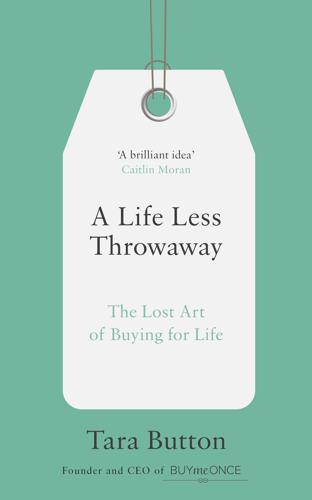
A Life Less Throwaway: The Lost Art of Buying for Life
by
Tara Button
Published 8 Feb 2018
In particular, look at: •colours, textures and patterns – e.g., I love eggshell blue, bare wood and lace, and am not so keen on plastic. •styles – e.g., I love period houses, carved furniture, wrap dresses and retro appliances. •cultural influences – e.g., I’ve faithfully loved Audrey Hepburn, period dramas, shabby chic and café culture for the last fifteen years. This exercise should help you be more mindful of your tastes while purchasing. If you can keep your main pieces in line with your more stable preferences, then, if you’re really desperate to make a change, you can use smaller pieces to reflect your more ‘of the moment’ tastes
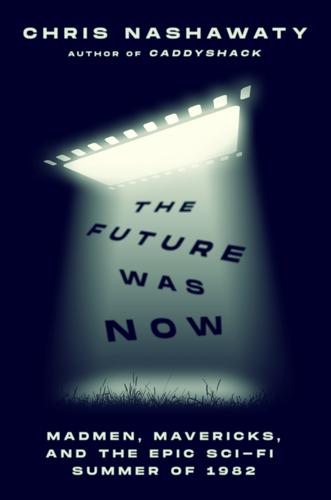
The Future Was Now: Madmen, Mavericks, and the Epic Sci-Fi Summer Of 1982
by
Chris Nashawaty
Just a little further down the list of the year’s top moneymakers was a smattering of titles that look very different from today’s shock-and-awe vantage point—there were comedies aimed at different age groups and different regions of the country (Arthur, Stripes, The Cannonball Run), serious Oscar-bait period dramas (Chariots of Fire, Absence of Malice), kids’ movies (Time Bandits, a Disney rerelease of 1950’s Cinderella), and even the sort of middlebrow adult-oriented fare that no teen wanted to see—or be seen at (The Four Seasons). In other words, there was still something for everyone. But for better or worse, the summer of 1982 was about to take that status quo and flip it upside down.
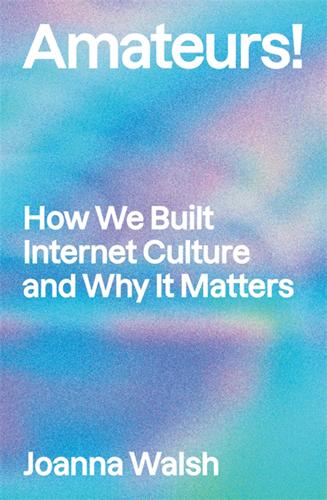
Amateurs!: How We Built Internet Culture and Why It Matters
by
Joanna Walsh
Published 22 Sep 2025
And I also think of the ‘reality’ of the 2020 ‘restored’ version that provides a similar shock of the real, not because I fear being crushed by something that seems physically real, but because the actors have been fleshed out with extra pixels so that they are no longer grainy and flat but look like they might have been filmed yesterday for some period drama. Like any mischievous modernist, the restorer plays with a contemporary version of Robert Hughes’ ‘shock of the new’. This shock is not provided by Wincklemann’s disjunct between ‘harmony of forms and expressive power’, but by a difference between technology and technology.7 My aesthetic pleasure as a viewer is located in my recognition of a technological advance.
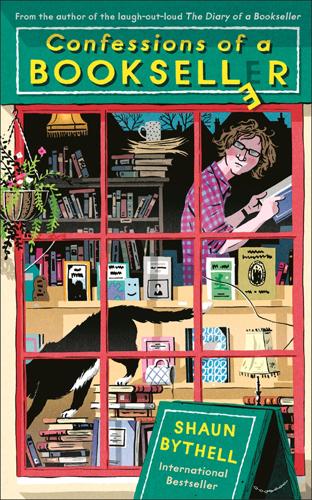
Confessions of a Bookseller
by
Shaun Bythell
Published 8 Aug 2019
It was one of the first places we went together when she came here from LA seven years ago. I think the juxtaposition of a beautiful garden and a stunning beach appeals to her filmic imagination. She is a film-maker by trade, and whenever we’re here, I can see her face change, and I know that in her head she’s directing a period drama set in this place. Email from Anna Dreda reminding me that her Readers’ Group is coming up next Sunday. I’ve offered them the use of the shop and the big room for the week, as February is so quiet it might as well be used. Anna has a bookshop in Much Wenlock in Shropshire, and stayed with me last year with her partner, Hilary, on their way home from a holiday in the Western Isles.
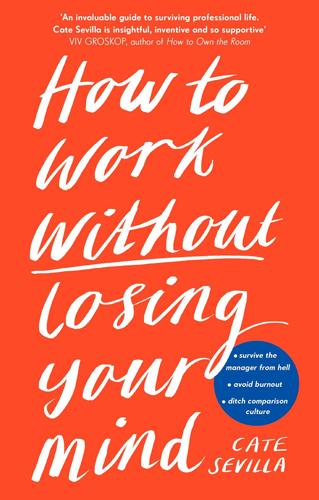
How to Work Without Losing Your Mind
by
Cate Sevilla
Published 14 Jan 2021
If I know someone professionally or I’m sufficiently friendly with them to feel weird about unfollowing, I mute them. (I highly recommend the mute button!) PSYCHOTHERAPY: doing a ton of work on the areas of my life that were sore spots for envy – my career, my hobbies, how I feel about my body. I lean into the good stuff, the things I enjoy – reading, watching period dramas on TV, yoga. I work on projects and make a living doing what I actually like and feel satisfied from (easier said than done). I’m honest with myself when I am feeling envious. I talk about my envy gremlins with other women I trust. A good approach to processing your feelings of envy at work is to start by assessing similar feelings in your world outside work: your triggering sister-in-law, that one mum from the school run, your best friend who never seems impressed by your good news, your old school friend you stalk on Instagram even though you don’t follow her and actually kind of hate her.
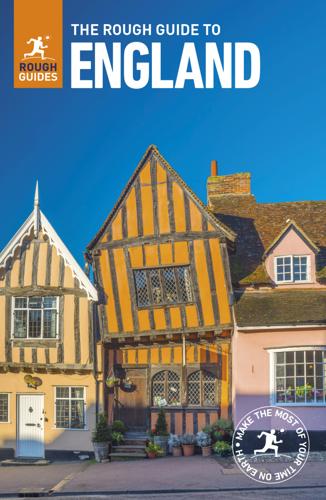
The Rough Guide to England
by
Rough Guides
Published 29 Mar 2018
. £120 The Real Downton Abbey Tucked away in the northern reaches of Hampshire, twenty miles north of Winchester, Highclere Castle (9.30am–5pm: Easter, early April & May bank hol weekends daily, mid-July to mid-Sept Mon–Thurs & Sun; castle, exhibition and gardens £22, castle and gardens £15, gardens £7; 01635 253210, highclerecastle.co.uk) will be very familiar to fans of ITV’s hit period drama, Downton Abbey, which was filmed here. Home to Lord Carnarvon and his family, the house is approached via a long drive that winds through a stunning 5000-acre estate, and is surrounded by beautiful gardens designed by Capability Brown. Inside the house, Downton Abbey aficionados will enjoy loitering in the Drawing Room and the Library, scene of many a drama and quivering stiff-upper-lip of Lord Grantham and his family, while upstairs you can peer into the bedrooms of the Crawley girls.
…
The town survived the collapse of the wool trade, prospering as an inland port after the Welland was made navigable to the sea in 1570, and, in the eighteenth century, as a staging point on the Great North Road from London. More recently, Stamford escaped the three main threats to old English towns – the Industrial Revolution, wartime bombing and postwar development – and was designated the country’s first Conservation Area in 1967. Thanks to this, its unspoilt streets readily lend themselves to period drama and filmmaking, and although it’s the harmony of Stamford’s architecture that pleases rather than any specific sight, there are still a handful of buildings of some special interest as well as an especially charming High Street. Church of All Saints All Saints’ Place, PE9 2AG • Mon–Sat 9am–5pm, Sun 9am–7pm • Free • stamfordallsaints.org.uk A convenient place to start an exploration of Stamford, the Church of All Saints stands at the western end of the town centre, its beautiful facade a happy amalgamation of Early English and Perpendicular.
…
Secrets and Lies (Mike Leigh, 1996). Serious-minded, slice-of-life ensemble drama charting a dysfunctional family’s hidden secrets, from infidelity to reconciliation – and all seen through the prism of class. Mike Leigh at his most penetrating. Sense and Sensibility (Ang Lee, 1995). Ah, the English and their period dramas. They are all here – Rickman, Winslett, Thompson, Grant, Robert Hardy et al – in this tone-perfect re-creation of Jane Austen’s sprightly story of love, money and, of course, manners. Trainspotting (Danny Boyle, 1996). High-octane dip into the heroin-scarred world of a group of young Scotsmen both at home and in London; includes what must be the best cinematic representation of a heroin fix ever.
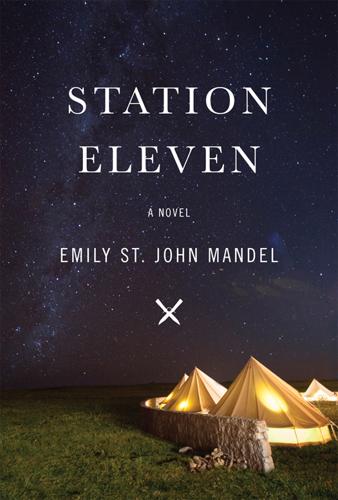
Station Eleven
by
Emily St. John Mandel
Published 8 Sep 2014
An older picture that she’d found in an attic stuffed with three decades’ worth of gossip magazines, taken before she was born: Arthur with his arm around the pale girl with dark curls who would soon become his first wife, caught by a photographer as they stepped out of a restaurant, the girl inscrutable behind sunglasses and Arthur blinded by the flash. 13 THE PHOTO FROM THE TABLOID: Ten minutes before the photograph, Arthur Leander and the girl are waiting by the coat check in a restaurant in Toronto. This is well before the Georgia Flu. Civilization won’t collapse for another fourteen years. Arthur has been filming a period drama all week, partly on a soundstage and partly in a park on the edge of the city. Earlier in the day he was wearing a crown, but now he’s wearing a Toronto Blue Jays cap that makes him look very ordinary. He is thirty-six years old. “What are you going to do?” he asks. “I’m going to leave him.” The girl, Miranda, has a recent bruise on her face.
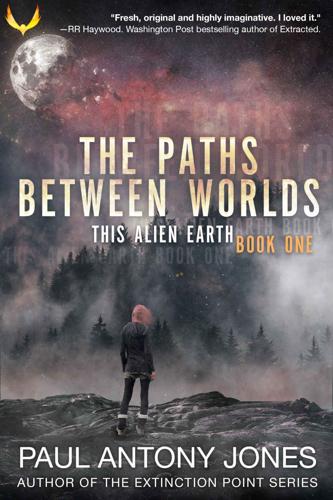
The Paths Between Worlds: This Alien Earth Book One
by
Paul Antony Jones
Published 19 Mar 2019
Others did the same, and by the time I pulled myself up onto the stony shore, shivering with the cold, arm and leg muscles spasming, twelve people had made it there before me. Eight men, the rest women, all with the same wide-eyed look of confusion in their eyes. One woman looked as though she’d stepped out of an eighteenth-century period drama, her long dress clinging to her body. Her auburn hair had been tied back in a bow, but it had come half-undone and flopped over her face. Another, a man this time, was dressed in robes, or maybe it was a toga. Another wore an expensive looking suit, and another some kind of military uniform. Others looked to be dressed in similar attire to my sweat-shirt and jeans, but there was something about the style that seemed dated to me, though I couldn’t put my finger on exactly why.
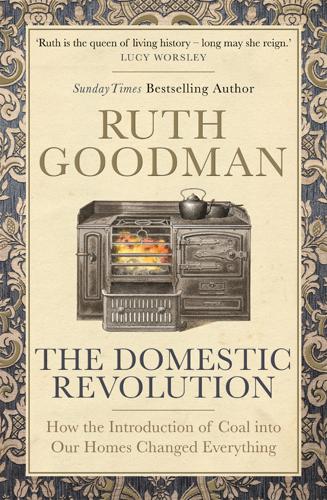
The Domestic Revolution
by
Ruth Goodman
Published 15 Apr 2020
The all-essential grate I have mentioned already the two technical aids to cooking on coal that made the big switch possible in the late sixteenth century: the chimney and the grate. But how did people come to the form of the grate? And how did they cook upon them? When most of us think of cooking on coal, we imagine facing one of those big, black iron ranges beloved of historic houses and period dramas. But these built-in ranges were the result of centuries of experimentation and technical development. The first grates were very different and involved a lot less iron. Survivals of the first grates are very rare, and early descriptions were terse in the extreme. Prices for grates, however, suggest that most were rather small and made of low-quality metal.

The Impossible City: A Hong Kong Memoir
by
Karen Cheung
Published 15 Feb 2022
There are vague plans for my father to follow her over, but he never does. My mother has to fend for herself in a strange new land where she has no friends, no employable skill. She could take one child—that seems fair. She picks the son, the male heir, more bargaining power. Sometimes, I think about my mother when I watch the period dramas that are on television every evening, about women in ancient China that would be banished into the “cold palace” after they fell out of favor with the emperor. My mother’s cold palace is the eternal-summer island of Singapore. And I am the abandoned child. * * * — Every summer, my parents make me spend weeks in Singapore with my mother and brother.
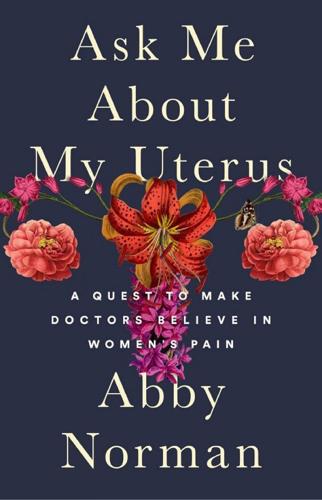
Ask Me About My Uterus: A Quest to Make Doctors Believe in Women's Pain
by
Abby Norman
Published 6 Mar 2018
Once medical science discovered and began to actively crusade against transmissible infection, childbed fever all but evaporated. But there were still risks to childbirth, many of which were silent and pernicious. Eclampsia, a dangerous rise in blood pressure, can cause fatal seizures after a baby is born and may come on quite suddenly. The youngest daughter of the Crawley family on the beloved period drama Downton Abbey died of this when the two male doctors who were charged with treating her couldn’t agree on her course of treatment: a storyline that, unfortunately, is based on fact. Of course, for the vast majority of human history, women gave birth virtually anywhere but in a hospital: at home, at work in the fields, in a hut or a cave—and certainly these places weren’t the most sterile and safe environments.
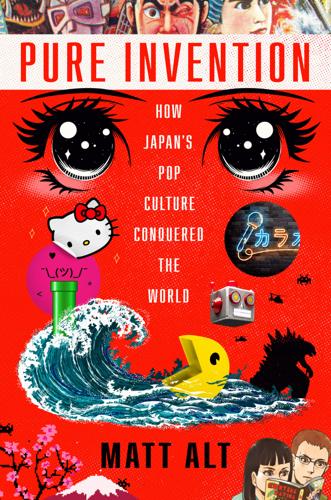
Pure Invention: How Japan's Pop Culture Conquered the World
by
Matt Alt
Published 14 Apr 2020
After a somewhat puzzling introduction (“Once, parents took their children to see animated features; today’s has reached such a level of sophistication that children take their parents”), Diaz went right into the nominees. The list was filled with the Hollywood names you might expect: 20th Century Fox Animation’s Ice Age, Disney’s Lilo & Stitch, DreamWorks’ period drama Spirit: Stallion of the Cimarron. Then came a literal dark-horse contender: Hayao Miyazaki’s Spirited Away. It won. This was a seriously strange turn of events for a film that its own producer claimed was initially rejected by U.S. distributors as unsuitable for American audiences. Spirited Away portrayed the strange adventure of Chihiro, a ten-year-old girl from the suburbs of modern-day Tokyo who journeys through a strange fairy-tale world to rescue her parents.
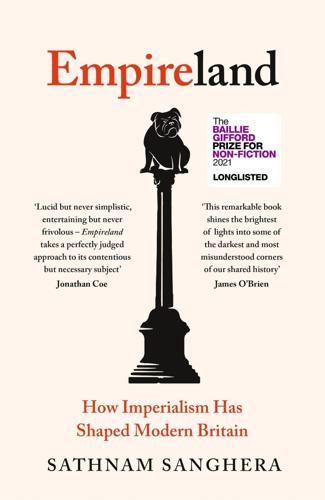
Empireland: How Imperialism Has Shaped Modern Britain
by
Sathnam Sanghera
Published 28 Jan 2021
When immigration is mentioned at all it is in relation to a “Latin love and romance” between an Italian migrant and a Wolverhampton local … the absence of black people is neither noted nor explained’), through the perpetuation of the idea that British history is intrinsically white (David Starkey, addressing a teachers’ conference in 2011, opined that ‘Britain is a white mono-culture and schools should focus on our own history’), through the regular accusations of ‘wokeness’ whenever a brown person is featured in a period drama (most recently when Dev Patel starred in a new adaptation of David Copperfield) and through the repetition of the idea that brown immigration only started with the arrival of black immigrants on the Empire Windrush (propounded in the opening ceremony of the London 2012 Olympics, which featured a giant model of the Empire Windrush, which docked at Tilbury in June 1948).
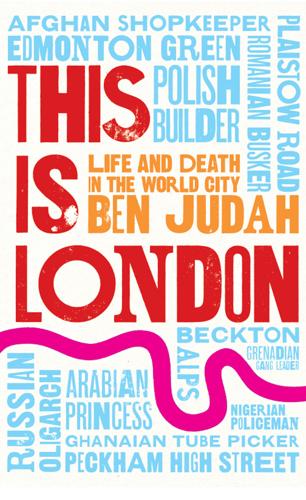
This Is London: Life and Death in the World City
by
Ben Judah
Published 28 Jan 2016
That old smoke was a right bastard . . . some fat piece of shit . . . And I’m sixteen, I’m hungry, I’m in London . . . and I want London . . . I want to look fresh, I want to dizzle dem bitches, I want fine wines in Kensington Roof Gardens . . . not hanging out with a Pepsi down KFC.’ Moses was watching TV. They loved period dramas in London. They loved people dressing up and living like it was the old days. And Moses would be thinking, Shit. That’s how I was living four years ago. He would blink: and remember Gun Battle. His grandfather’s shack. Even them oil lamps they had when he was really small. Back when the only TV was the one up in the corner in the local wooden store.
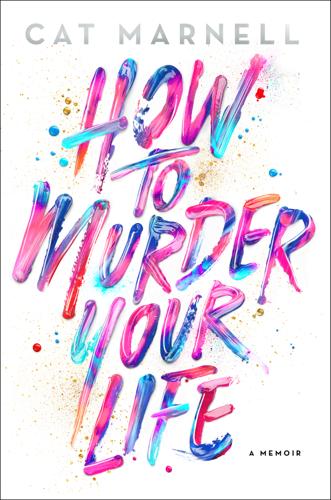
How to Murder Your Life: A Memoir
by
Cat Marnell
Published 30 Jan 2017
I couldn’t believe I was there. Courtney wasn’t home yet, so we talked to Hershey, one of the two housekeepers she’d poached from the Mercer Hotel. She told us Courtney loved avocados. Wow! So did I! And then . . . Courtney swept into the room like fucking Hedda Gabler or something! She was dressed “period drama” in a long skirt that sort of swooshed everywhere, low heels, and a high-necked sheer blouse. She was braless (swag), with cool blond highlights. Her pale, perfect skin looked even more expensive than her living room. I nudged my filthy Gucci tote behind the sofa with my foot. The next two hours were . . . how do I even put it?
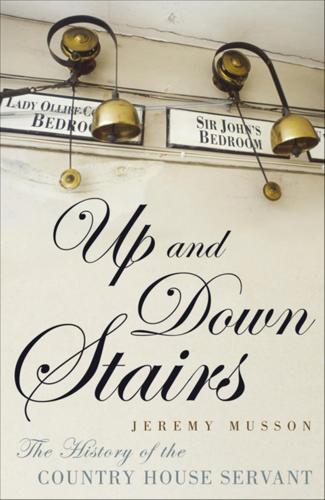
Up and Down Stairs: The History of the Country House Servant
by
Jeremy Musson
Published 12 Nov 2009
He worked for more than twenty-five masters, for varying intervals, relishing his independence and the mobility of his profession – although his initial training was in a country house in the early part of the century.5 This is a flesh and blood tale, in which Macdonald displays his vanity, admits his own faults and forgives those of others with admirable equanimity. Servants were not just items in the account books, any more than the aristocracy and gentry that they worked for were as one-dimensional as their posed portraits might suggest, or as vacuous, haughty and thoughtless as characterisations in period drama would have us believe. Mr Macdonald’s memoir begins with a childhood pitched into destitution that segues into a long and relatively rewarding career in domestic service. From the lowly position of postilion and footman, he rose to become valet and manservant to numerous gentlemen, particularly when on their travels.
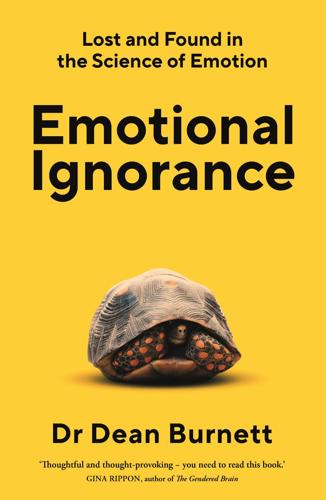
Emotional Ignorance: Lost and Found in the Science of Emotion
by
Dean Burnett
Published 10 Jan 2023
And the unpleasant emotions this grim ritual induces in us don’t just vanish into the ether once it’s done. They can have lasting, fundamental effects on us, thanks to a neurological mechanism known, appropriately enough, as ‘appraisal theory’.58 Appraisal theory began as an attempt to explain why people regularly have different emotional reactions to the same things. You may get teary-eyed at a period drama, while the person sat beside you is bored senseless. Some love skydiving, others panic at the very notion. If our emotions were created by the same hard-wired mechanisms in each brain, as many have argued, then logically we should all have the same fears, likes, dislikes, and so on. That doesn’t happen, though.

England
by
David Else
Published 14 Oct 2010
Above the choir vestry is the famous chained library ( 10.30am-12.30pm & 2-4pm Mon-Fri Easter-Oct). Established in 1686, it’s filled with some of the country’s oldest medieval books, 12th-century manuscripts written on lambskin, and ancient recipes, including ones for making ink out of oak apples. KINGSTON LACY Looking every inch the setting for a period drama, Kingston Lacy (NT; 01202-883402; house & grounds adult/child £10/5, grounds only £5/2.50; house 11am-4pm Wed-Sun Mar-Oct) became home to the aristocratic Bankes family when they were evicted from Corfe Castle Click here by the Roundheads. This grand, 17th-century country mansion was later clad in stone by Charles Barry, architect of the Houses of Parliament Click here, but it’s best known for its resplendent Spanish Room, which is hung with gilded leather.
…
You can easily spot the part 13th-, part 16th-century parish church of St Wulfram’s ( 9am-4pm Mon-Sat Apr-Sep, to 12.30pm Mon-Fri, 10am-1pm Sat Oct-Mar) thanks to its pin-sharp 85m spire. It has an interesting crypt chapel, and hidden up a steep stairwell is a 16th-century chained library where a young Newton once pored over his studies. A dream location for English period dramas (several have been filmed here), serene Restoration country mansion, Belton House (NT; 01476-566116; A607; adult/under 16yr £9.50/5.50, grounds only £7.50/4.50; 12.30-5pm Wed-Sun Apr-Oct), stands in a 400-hectare park 3 miles northeast of Grantham. Built in 1688 for Sir John Brownlow, it shelters some astonishingly ornate woodcarvings attributed to the master Dutch carver Grinling Gibbons.
…
Stamford pop 19,525 This handsome town has a sunny disposition all year round thanks to the warm honey-coloured Lincolnshire limestone of its buildings. Nestling against the River Welland and a lush waterside park, handsome Stamford’s tangle of streets are bursting with fine medieval and Georgian constructions. And if you feel as though you’re walking through a period drama, there’s a reason: Stamford has been used as a set for more drama productions than you can shake a clapperboard at. * * * A TALE OF LITTLE & LARGE Stamford guides are fond of telling the story of the unfortunate Daniel Lambert, who was born a healthy baby in 1770, but who soon began to tip the scales at ever more alarming totals.
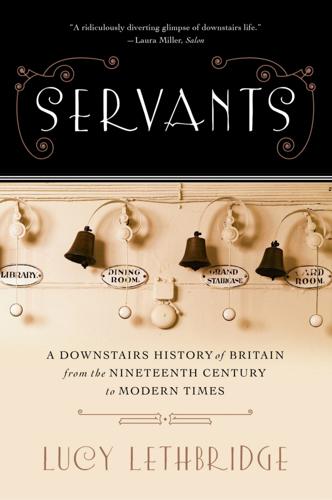
Servants: A Downstairs History of Britain From the Nineteenth Century to Modern Times
by
Lucy Lethbridge
Published 18 Nov 2013
And Eileen Balderson, one of the few women servant memoirists who seemed genuinely to have revelled in life as a country house domestic, came out of retirement in 1982 to pen Backstairs Life in a Country House, with a co-writer who remembered that she was ‘passionately determined to get it right’ after noticing all the errors made by television period dramas. Other former servants noted how such dramas often got the smallest details wrong. An Oxfordshire woman who had been a maid between the wars found costume designers overly keen on elaborate, beribboned headwear: ‘Oh no, we didn’t have those flowing things – that’s only on the television.’2 No contemporary cultural phenomenon, however, has laid the template of our idea of below-stairs life quite so completely as the ITV television series Upstairs, Downstairs, which, over four years (1971–5), and sixty-eight episodes, reached an estimated one billion viewers worldwide.
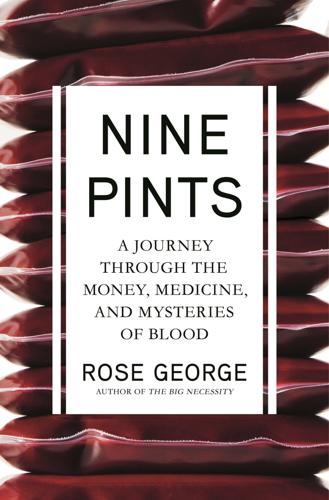
Nine Pints: A Journey Through the Money, Medicine, and Mysteries of Blood
by
Rose George
Published 22 Oct 2018
ActionAid blog, “1 in 4 Women Don’t Understand Their Menstrual Cycle,” May 23, 2017, www.actionaid.org.uk/blog/news/2017/05/24/1-in-4-uk-women-dont-understand-their-menstrual-cycle. 46. WaterAid Australia, WaterAid blog, “Leaks, Cramps and Cravings: Majority of Women Adapt Their Lifestyle Because of a Fear of ‘Period Dramas,’” May 25, 2016, www.wateraid.org/au/articles/leaks-cramps-and-cravings-majority-of-women-adapt-their-lifestyle-because-of-a-fear-of. Also Rose George, “My Gold Medal Goes to Fu Yuanhui for Talking Openly About Her Period,” Guardian, August 16, 2016. 47. Frank Bures, The Geography of Madness: Penis Thieves, Voodoo Death, and the Search for the Meaning of the World’s Strangest Syndromes (Brooklyn, NY: Melville House, 2016), 39. 48.
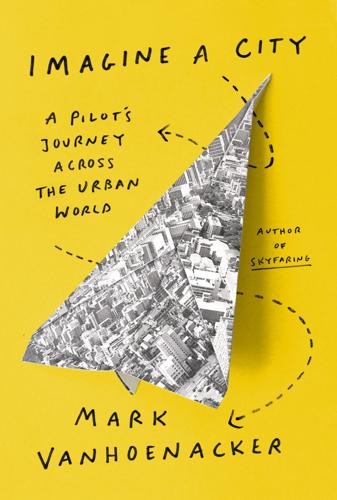
Imagine a City: A Pilot's Journey Across the Urban World
by
Mark Vanhoenacker
Published 14 Aug 2022
Thus Romulus acquired sole power, and the city, thus founded, was called by its founder’s name. PITTSFIELD On a March day I’m standing in a graveyard old enough not to have a proper parking lot, so I pulled up on the grass outside its gate. It seemed wrong, especially when I imagined carriages where my rented Nissan stands now, and scenes of funerals from period dramas (the steaming breath of the horses, the women all in black, the grim-faced men holding their tall hats), but there’s nowhere else to park, and the frozen ruts indicate I’m not the first driver to stop there. The cemetery, roughly square, is enclosed by a stone wall that’s collapsed in places, and, I conclude from a few beer cans wedged into the gaps, intentionally pulled down in others.
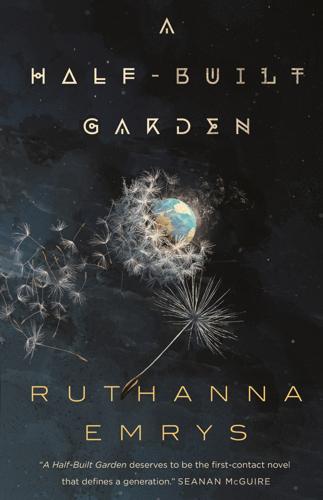
A Half-Built Garden
by
Ruthanna Emrys
Published 25 Jul 2022
We are the reach of the Rings—how dare you presume to judge how they care for their children, and their willingness to grasp what we offer, when you met them for the first time in the act of egg-theft? You’ve never had a single conversation with a human, and you have no right to make accusations against them. “I came to Earth anticipating, like you, that humans would act like grateful tree-folk in a period drama. But the real history of the First Reach is one of teaching and learning, patience and curiosity. Symbiosis does not evolve in a day or an orbit—and is not gained through force or theft. And—this we should know already—it does not look like what either side had before. Many of you want to bring a new species into symbiosis without altering your current comforts.

Lonely Planet Egypt
by
Lonely Planet
Literally, it means ‘God willing’ but it’s used freely to answer queries and as a general expression of hope. Another phrase you’ll hear often is ilhamdulillah. It’s used as an expression of thanks when something good has happened; it literally translates as ‘praise be to God’. WATCH ANTON_IVANOV/SHUTTERSTOCK © Secret of the Nile (Mohamed Shaker; 2016) This 30-episode period drama is set in Aswan’s Old Cataract Hotel (pictured). Terrorism and Kebab (Sherif Arafa; 1992) Comedy classic sending up the bureaucratic chaos inside Cairo’s Mogamma building. The Square (Jehane Noujaim; 2013) Award-winning documentary about the 2011 Revolution. Photocopy (Tamer Ashri; 2017) Sweet love story about an elderly man rediscovering life and love after retirement.
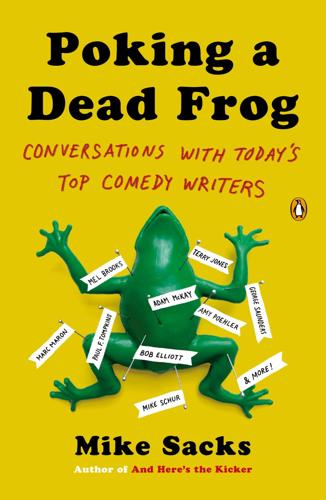
Poking a Dead Frog: Conversations With Today's Top Comedy Writers
by
Mike Sacks
Published 23 Jun 2014
When I was done, Tim and his producers went crazy for it. I’d never been showered with so many compliments in my life. They sent a gigantic fruit basket with a note that literally said, GREAT JOB! YOU DID IT! I was so emboldened by the prospects of Cabin Boy, I immediately sat down and started writing my next script—a 1950s period drama about an incestuous brother and sister that takes place down south on a worm farm. That’s not a joke; that was a real project. Anyway, everything was moving along just fine, and then I got a call one day saying Tim had changed his mind about Cabin Boy. He no longer wanted to direct it; he wanted to produce it.
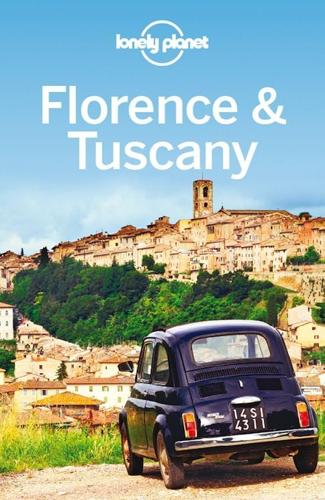
Lonely Planet Florence & Tuscany
by
Lonely Planet
,
Virginia Maxwell
and
Nicola Williams
Published 1 Dec 2013
ON LOCATION IN TUSCANY Tuscany has been a popular location for international film and TV shoots, including the following: » The English Patient (Anthony Minghella; 1996) Includes scenes shot in a monastery outside Pienza but is predominantly remembered for its lyrically beautiful sequence when Kip (Naveen Andrews) takes Hana (Juliette Binoche) into Arezzo’s Cappella Bacci and hoists her aloft on ropes so that she can see Piero della Francesa’s frescoes by the light of a flare. » Gladiator (Ridley Scott; 2000) Those glorious shots of fields of wheat rippling in the breeze were shot near Pienza. » Hannibal (Ridley Scott; 2001) Parts of the sequel to The Silence of the Lambs were shot in Florence. » Miracle at St Anna (Spike Lee; 2008) Based on James McBride’s novel about four black American soldiers who get trapped in a Tuscan village near Lucca during WWII. » Much Ado about Nothing (Kenneth Branagh; 1993) Branagh, Emma Thompson and Keanu Reeves star in this adaptation of Shakespeare’s comedy; shot in Chianti. » New Moon (Chris Weitz; 2009) Parts of the second film in the Twilight trilogy were shot in Montepulciano’s main piazza, despite the fact that in the book the action occurs in Volterra. » Obsession (Brian De Palma; 1976) Clearly influenced by Hitchcock’s Vertigo, this lacklustre effort is only redeemed by some lovely shots of Florence. » The Portrait of a Lady (Jane Campion; 1996) Features a couple of scenes shot in Florence. » Quantum of Solace (Marc Forster; 2008) The 22nd Bond film featured great action sequences shot in Carrara and Siena. » A Room with a View (James Ivory; 1985) Hugely popular period drama set in Florence; there was also a 2007 UK ITV adaptation by Andrew Davies. » September Affair (William Dieterle; 1950) Joseph Cotten and Joan Fontaine fall in love in Florence; features Kurt Weill’s famous ‘September Song’. » Stealing Beauty (Bernardo Bertolucci; 1996) In her first film role, Liv Tyler grapples with grief and burgeoning sexuality in the lush Tuscan countryside. » Summer’s Lease (Martyn Friend; 1989) Award-winning BBC television adaptation of John Mortimer’s 1998 novel.
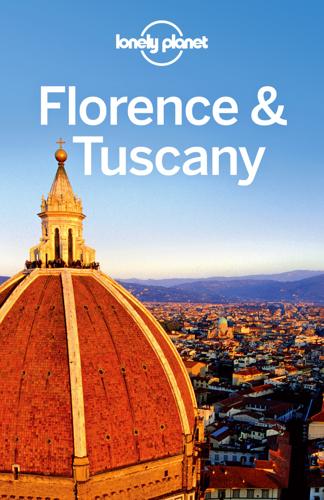
Florence & Tuscany
by
Lonely Planet
Anna (Spike Lee; 2008) Based on James McBride’s novel about four black American soldiers who get trapped in a Tuscan village near Lucca during WWII. » Much Ado about Nothing (Kenneth Branagh; 1993) Branagh, Emma Thompson and Keanu Reeves star in this adaptation of Shakespeare’s comedy; shot in Chianti. » New Moon (Chris Weitz; 2009) Parts of the second film in the Twilight trilogy were shot in Montepulciano’s main piazza, despite the fact that in the book the action occurs in Volterra. » Obsession (Brian De Palma; 1976) Clearly influenced by Hitchcock’s Vertigo, this lacklustre effort is only redeemed by some lovely shots of Florence. » The Portrait of a Lady (Jane Campion; 1996) Features a couple of scenes shot in Florence. » Quantum of Solace (Marc Forster; 2008) The 22nd Bond film featured great action sequences shot in Carrara and Siena. » Romola (Henry King; 1924) The silent film version of George Eliot’s novel starred Lillian Gish and was filmed in Florence. » A Room with a View (James Ivory; 1985) Hugely popular period drama set in Florence; there was also a 2007 UK ITV adaptation by Andrew Davies. » September Affair (William Dieterle; 1950) Joseph Cotten and Joan Fontaine fall in love in Florence; features Kurt Weill’s famous ‘September Song’. » Stealing Beauty (Bernardo Bertolucci; 1996) In her first film role, Liv Tyler grapples with her grief and burgeoning sexuality in the lush Tuscan countryside. » Under the Tuscan Sun (Audrey Wells; 2003) A lightweight film version of the wildly popular memoir set in Cortona. » Up at the Villa (Philip Haas; 2000) Sean Penn and Kristin Scott Thomas star in an adaptation of Somerset Maugham’s novel. » Where Angels Fear to Tread (Charles Sturridge; 1991) A fine cast including Helen Mirren, Judy Davis and Helena Bonham Carter stars in this period film shot in San Gimignano.

Lonely Planet Wales (Travel Guide)
by
Lonely Planet
Published 17 Apr 2017
The tour is enlivened by narrations from an array of Victorian characters and you'll explore the apartments where circuit judges used to stay and where the servants who tended them lived. 4Sleeping oOld VicarageB&B££ (%01544-260038; www.oldvicarage-nortonrads.co.uk; Norton; s/d from £78/112; p) This three-room, gay-friendly boutique B&B features Victorian fittings, making you feel like you've wandered onto the set of a period drama. Opulent, rich colours dominate and the peace of your sojourn is only interrupted by the chiming of antique clocks. Sumptuous three-course dinners (£34.95) need to be booked in advance. Norton is 1.5 miles north of Presteigne on the B4355. Wegnalls HouseB&B££ (%01544-267710; www.kingsturning.co.uk; Kingsturning; s/d £50/80; p) This substantial early Edwardian redbrick house, right on the brook that marks the England/Wales border in these parts, is the venue for a very pleasant guesthouse.

Lonely Planet Sri Lanka
by
Lonely Planet
The setting is good, in a timber pavilion beside a bubbling stream. Call for free pick-up from Nanu Oya station. oFerncliffBOUTIQUE HOTEL$$$ ( GOOGLE MAP ; %072 231 9443; www.ferncliff.lk; 7/10 Wedderburn Rd; r incl breakfast US$182; W) Set in spacious lawned grounds, this colonial-era bungalow is straight out of a period drama – even the sprucely turned-out staff hovering in the background play their parts perfectly. There are just four spacious rooms, each with modish en suites, and you'll love the guests' lounge complete with log fire. Dining here is excellent, with delicious, filling meals. Grand HotelHERITAGE HOTEL$$$ ( MAP GOOGLE MAP ; %052-222 2881; www.tangerinehotels.com; Grand Hotel Rd; r/ste incl breakfast from US$222/277; aiW) This huge mock-Tudor edifice has immaculate lawns, a reading lounge and an impressive partly open dining terrace.

Sweden
by
Becky Ohlsen
Published 19 Jun 2009
The grand entrance has been retained, complete with painted glass ceiling and sweeping staircase, and the elegant, airy rooms make necessary 21st-century concessions like flatscreen TVs and renovated bathrooms. There’s also homemade cake for guests. Check the website for special offers. Hotel Eggers (333 44 40; www.hoteleggers.se; Drottningtorget; s/d from Skr1495/1835; ) Elegant Eggers would make a great set for a period drama. Founded as a railway hotel in 1859, its rooms are a Regency-style treat. A good few have private balconies overlooking the bustling square, and nearby parking spots (Skr120 per 24 hours) can be booked at reception. Hotell Barken Viking (63 58 00; barken.viking@liseberg.se; Gullbergskajen; s/d Skr1495/2050; ) Freshly revamped, Barken Viking is an elegant four-masted sailing ship, converted into a stylish hotel and restaurant and moored near Lilla Bommen harbour.
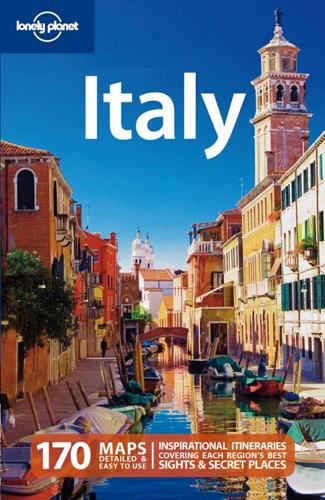
Italy
by
Damien Simonis
Published 31 Jul 2010
Heading north, Santo Stefano d’Aveto (population 1280) is a small cross-country skiing centre and the main village in the valley. Between the two is Lago delle Lame, a glacial lake whose shallow waters have preserved fir-tree stumps from 2500 years ago. Cinque Terre A film director aiming to shoot an authentic period drama set in 17th-century Italy need look no further than Cinque Terre. Bar an overabundance of ogling tourists and a busy 19th-century railway line that burrows through a series of coastal tunnels, barely anything about these five crazily constructed Ligurian villages has changed in over three centuries.
…
San Lorenzo Tre ( 075 894 45 55; www.sanlorenzo3.it; Via San Lorenzo 3; s/d €75/110, s/d without bathroom €55/75, all incl breakfast; Mar-Dec) Five generations of the same family have lived at this proper historic residence, and the current owner, Marzia, keeps the B&B’s decor as honest a representation as you’ll find anywhere in Umbria. Awaiting guests are filling, home-cooked breakfasts, a stunning rooftop view and rooms so atmospherically romantic, they were once used as the backdrop of a period drama. Todi Castle ( 0744 95 20 04; www.todicastle.com; Vocabolo Capecchio, Morre; room in villa from €120, room in castle incl breakfast from €160, weekly rates available; ) Here’s your chance to live in an honest-to-goodness castle, or in one of three equally perfect (and more affordable) private villas.
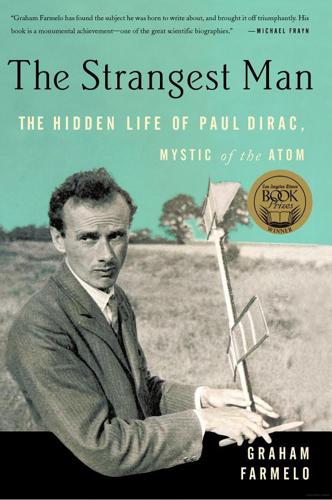
The Strangest Man: The Hidden Life of Paul Dirac, Mystic of the Atom
by
Graham Farmelo
Published 24 Aug 2009
He and Manci might go to a classical concert, or he might read a novel – Edgar Allen Poe mysteries, Le Carré spy thrillers and Hoyle’s science-fiction stories were among his favourites – or watch television with Manci in the family room, dominated by a painting of Judy when she was a child.11 Dirac watched most of the Nova science documentaries, but the programmes that he and Manci regarded as unmissable were period dramas: The Forsyte Saga – Dirac was spellbound by the leading lady, Nyree Dawn Porter – and Upstairs, Downstairs, dramatising the class divisions between the servants and their masters in an Edwardian household. On the night an episode of the programme was broadcast, the Diracs would accept dinner invitations with friends only if their hosts agreed in advance to watch it with them in silence.
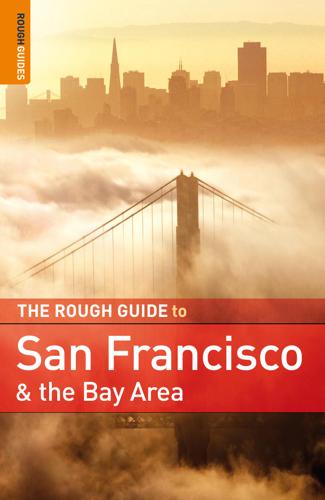
Rough Guide to San Francisco and the Bay Area
by
Nick Edwards
and
Mark Ellwood
Published 2 Jan 2009
Expect talk shows in the morning, soaps in the afternoon, and marquee-name comedies and dramas in primetime. If that’s all too maddeningly commercial-heavy, there’s always the rather earnest, ad-free public broadcasting station KQED (channel 9), which fills its schedule with news, documentaries, and imported period dramas. There’s a wider choice on cable, including CNN for news, and the Food Network for cooking shows or epicurean travelogues; well-regarded premium channels like HBO and Showtime are often available on hotel TV systems, showing original series and blockbuster movies. Radio Listening to the radio is often one of the smartest ways to gauge the character of the local area.
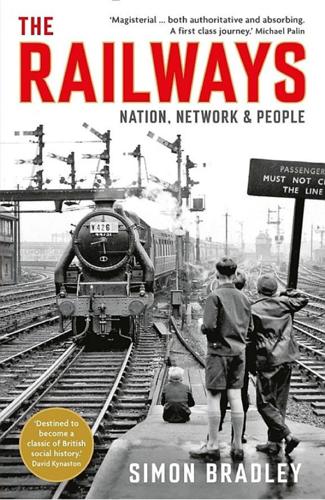
The Railways: Nation, Network and People
by
Simon Bradley
Published 23 Sep 2015
All those enamelled signs, platform scales, milk churns and trolleys piled high with old suitcases, the clichés of many a preserved line, create instant atmosphere when framed in the camera lens. Exclusive occupation for filming is another attraction, as long as the high season is avoided. As viewers of period dramas may dimly be aware, their characters’ meetings and tear-stained partings on railway platforms occur suspiciously often in the colder months, amid evocative clouds of steam. The Bluebell does all this especially well, dressing its stations with well-chosen signage, posters and accessories from different periods, late-Victorian to 1950s.

Scandinavia
by
Andy Symington
Published 24 Feb 2012
Staff are friendly, rooms are comfy and for about Skr300 extra you can have a private bathroom. A continental breakfast is included, or you can opt to buy the breakfast buffet at the in-house restaurant–pub (which boasts 80 varieties of beer). Hotel Eggers HOTEL €€ ( 333 44 40; www.hoteleggers.se; Drottningtorget; s/d around Skr1270/1590; ) Elegant Eggers would make a great set for a period drama. Founded as a railway hotel in 1859, its rooms are a Regency-style treat. A good few have private balconies overlooking the bustling square, and nearby parking spots (per 24 hours Sk120) can be booked at reception. Hotell Barken Viking HOTEL €€€ ( 63 58 00; barken.viking@liseberg.se; Gullbergskajen; s/d Skr1595/2150; ) Barken Viking is an elegant four-masted sailing ship, converted into a stylish hotel and restaurant and moored near Lilla Bommen harbour.
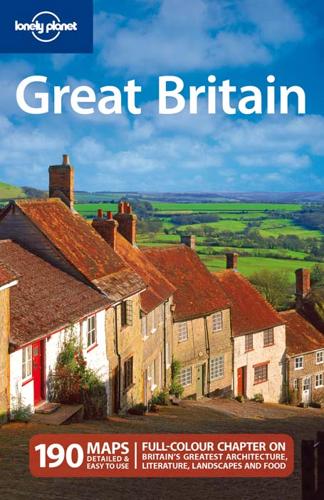
Great Britain
by
David Else
and
Fionn Davenport
Published 2 Jan 2007
You can easily spot the part 13th-, part 16th-century parish church of St Wulfram’s ( 9am-4pm Mon-Sat Apr-Sep, to 12.30pm Mon-Fri & 10am-1pm Sat Oct-Mar) thanks to its pin-sharp 85m spire. It has an interesting crypt chapel, and hidden up a steep stairwell is a rare 16th-century chained library where a young Newton once pored over his studies. A dream location for English period dramas (several have been filmed here), serene Restoration country mansion, Belton House (NT; 01476-566116; A607; adult/child under 16yr £9.50/5.50, grounds only £7.50/4.50; 12.30-5pm Wed-Sun Apr-Oct), stands in a 400-hectare park, 3 miles northeast of Grantham. Built in 1688 for Sir John Brownlow, it shelters some astonishingly ornate woodcarvings attributed to the master Dutch carver Grinling Gibbons.
…
Return to beginning of chapter STAMFORD pop 19,525 This handsome town has a sunny disposition all year round thanks to the warm honey-coloured Lincolnshire limestone of its buildings. Nestling against the River Welland and a lush waterside park, handsome Stamford’s tangle of streets is bursting with fine medieval and Georgian constructions. And if you feel as though you’re walking through a period drama, there’s a reason: Stamford has been used as a set for more drama productions than you can shake a clapperboard at. The tourist office ( 01780-755611; stamfordtic@southkesteven.gov.uk; 27 St Mary’s St; 9.30am-5pm Mon-Sat & 10am-3.30pm Sun Apr-Oct) is in the Stamford Arts Centre, and helps with accommodation.

Lonely Planet Greek Islands
by
Lonely Planet
,
Alexis Averbuck
,
Michael S Clark
,
Des Hannigan
,
Victoria Kyriakopoulos
and
Korina Miller
Published 31 Mar 2012
In 477 BC Athens established a confederacy on the sacred island of Delos and demanded tributes from the surrounding islands to protect them from the Persians. The treasury was moved to Athens in 461 BC and Pericles (ruler from 461 BC to 429 BC) used the money to transform the city. This period has become known as Athens’ golden age, the pinnacle of the classical era. Most of the monuments on the Acropolis today date from this period. Drama and literature flourished with such luminaries as Aeschylus, Sophocles and Euripides. The sculptors Pheidias and Myron and the historians Herodotus, Thucydides and Xenophon also lived during this time. RIVALRY WITH SPARTA Sparta did not let Athens revel in its new-found glory. The jockeying for power between the two led to the Peloponnesian Wars in 431 BC, which dragged on until 404 BC, when Sparta gained the upper hand.
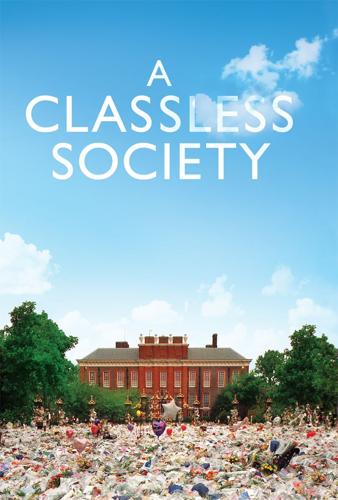
A Classless Society: Britain in the 1990s
by
Alwyn W. Turner
Published 4 Sep 2013
It was easy to mock, but there was undoubtedly a part of the British psyche that yearned for the old certainties. Major’s creation of a cabinet post for national heritage (which didn’t outlast him, being reconstituted as the department for culture, media and sport) reflected not only the public taste for those period dramas of which Virginia Bottomley approved, but also the standing of the National Trust. Founded in 1895, the organisation had celebrated its fiftieth birthday at the end of the Second World War with 8,000 members; by the end of the century it numbered two million, far in excess of all the political parties put together.

Greece Travel Guide
by
Lonely Planet
In 477 BC Athens established a confederacy on the sacred island of Delos and demanded tributes from the surrounding islands to protect them from the Persians. The treasury was moved to Athens in 461 BC and Pericles, ruler from 461 BC to 429 BC, used the money to transform the city. This period has become known as Athens’ golden age – the pinnacle of the classical era. Most of the monuments on the Acropolis today date from this period. Drama and literature flourished due to such luminaries as Aeschylus, Sophocles and Euripides. The sculptors Pheidias and Myron and the historians Herodotus, Thucydides and Xenophon also lived during this time. Rivalry with Sparta Sparta did not let Athens revel in its newfound glory. Their jockeying for power led to the Peloponnesian Wars in 431 BC, which dragged on until 404 BC, when Sparta gained the upper hand.
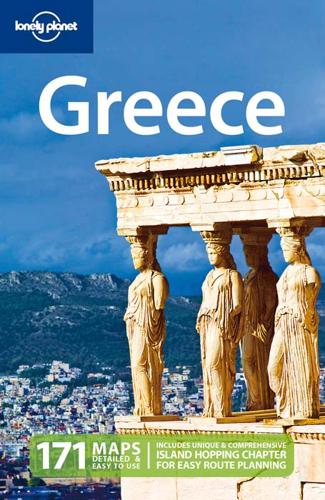
Greece
by
Korina Miller
Published 1 Mar 2010
It was little more than a standover racket because the Persians were no longer much of a threat. The treasury was moved to Athens in 461 BC and Pericles (ruler from 461 BC to 429 BC) used the money to transform the city. This period has become known as Athens’ golden age, the pinnacle of the classical era. Most of the monuments on the Acropolis today date from this period. Drama and literature flourished in the form of the tragedies written by such luminaries as Aeschylus, Sophocles and Euripides. The sculptors Pheidias and Myron and the historians Herodotus, Thucydides and Xenophon also lived during this time. * * * GODS & MYTHS Athena, the city’s patron deity, dominates Athens’ mythology and the city’s great monuments are dedicated to the goddess.
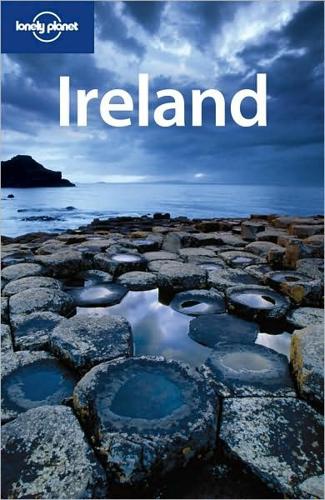
Ireland (Lonely Planet, 9th Edition)
by
Fionn Davenport
Published 15 Jan 2010
Return to beginning of chapter ENTERTAINMENT Dublin’s too small to be the entertainment mecca the tourist authorities and other interested parties would have once had you believe, but it’s still a pretty decent burg to have a good time in, with a range of options to satisfy almost all desires, from period drama to dog racing and most distractions in between. For entertainment information, pick up a copy of the Event Guide (www.eventguide.ie), a bimonthly freebie available at many locations, including bars, cafes and hostels; the fortnightly music-review Hot Press (www.hotpress.com); or the freebie In Dublin, also out every two weeks.

Southeast Asia on a Shoestring Travel Guide
by
Lonely Planet
Published 30 May 2012
Finding the right guide – and, through them, the right longhouse – can mean the difference between spending a sleepless night with other sweaty, bored tourists, and having a spirited evening (double entendre intended) swapping smiles, stories and shots of rice wine with the locals. What to Expect When you arrive at a longhouse, don’t be surprised to find that it wouldn’t make a very good film set for a period drama about headhunters. The Dayaks have moved – for the most part willingly – into the 21st century and so have their dwellings. Remember, though, that a longhouse, more than being a building, is a way of life embodying a communal lifestyle and a very real sense of mutual reliance and responsibility.